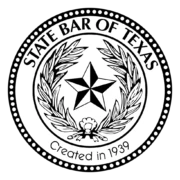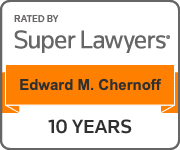What Happens After You’re Indicted by a Grand Jury in Texas?
June 19, 2025

If you’ve just been indicted by a grand jury in Texas—or you’ve learned that someone close to you has—it can feel like the floor just dropped out from under you. One minute you’re trying to make sense of an investigation, and the next you’re being told that felony charges are officially on the way.
That’s a heavy moment. But it’s also a critical one—because what happens after you’re indicted by a grand jury in Texas isn’t just about the legal process. It’s about protecting your future, your freedom, and your next move.
This blog will walk you through what a grand jury indictment actually means, what comes next, and what you can do right now if you’re facing felony prosecution in Texas.
What Does It Mean to Be Indicted in Texas?
In Texas, felony charges typically can’t move forward without a grand jury indictment. A grand jury is a group of 9 to 12 citizens who hear evidence presented by a prosecutor. Their role isn’t to decide whether someone is guilty or innocent. They’re only asked to decide whether there’s probable cause to charge someone with a felony crime. Probable cause is not a high bar.
Under Texas law, all felony prosecutions must begin with a grand jury indictment unless waived by the defendant, as outlined in the Texas Constitution.
These proceedings are confidential. Except in rare exceptions, you won’t be in the room. Your defense attorney will never be invited. Grand juries often hear only the state’s side, and if they believe there’s enough to go on, they return what’s called a “true bill”—that’s your indictment.
It’s important to know: An indictment isn’t a conviction. It’s a formal accusation. And that’s when the state begins building its case in court.
What Happens After the Indictment?
Once you’re indicted, your case shifts into the formal court process. Here’s what typically happens next:
A Warrant May Be Issued
If you weren’t arrested before the indictment, the court may issue an arrest warrant. You could be taken into custody, or in some cases, your attorney may be able to arrange a voluntary surrender, which can help avoid unnecessary jail time.
Your Case Is Assigned to a Court and Judge
After you’re indicted, your case is assigned to a criminal district court in the jurisdiction where the alleged offense occurred. Once it’s on a judge’s docket, formal hearings and pretrial proceedings begin. From this point on, each phase of the process can significantly affect the outcome—making early legal strategy especially important.
Arraignment and Bond Conditions
Your arraignment is usually your first court appearance after indictment. The court will formally explain the charges and determine or review your bond conditions. If you’ve already bonded out from a previous arrest, conditions may be modified or reaffirmed. These can include travel restrictions, drug testing, or no-contact orders depending on the nature of the charges.
Discovery and Evidence Review Begins
After indictment, your attorney gains access to discovery, which includes the evidence the prosecution intends to use. This often includes:
- Police reports
- Witness statements
- Audio/video recordings
- Forensic or lab results
- Digital evidence
- Expert analyses
Reviewing this material is a crucial step in shaping your defense. The discovery phase also helps determine whether your rights were violated and whether certain evidence can be challenged or excluded.
Pretrial Hearings and Motions
The court will schedule several pretrial hearings, where your attorney can raise issues with the evidence or procedure. Common motions include:
- Motions to suppress illegally obtained evidence
- Motions to dismiss based on lack of probable cause
- Requests to limit prejudicial or irrelevant information
This phase is also where negotiations with the prosecution may occur. Depending on the strength of the case, some charges are reduced or dismissed before trial. Other times, the case heads toward a jury.
How Serious Is a Grand Jury Indictment?
A grand jury indictment in Texas means you are facing felony-level consequences. These aren’t minor charges. They include crimes like:
- Aggravated assault
- Sexual assault or indecency with a child
- Drug trafficking or manufacturing
- White collar crimes like fraud or embezzlement
- Felony DWI, particularly those involving injury or death
- Weapons charges or violent offenses
The consequences of a conviction can include prison time, large fines, probation with strict conditions, and a permanent criminal record. If you’re unsure what happens after you’re indicted by a grand jury in Texas, know this: your actions now will shape everything that follows.
Can You Fight the Charges After an Indictment?
Yes. Being indicted is only the start of the process—not the end. The state still has the burden to prove the charges beyond a reasonable doubt, and you have the right to challenge every piece of their case.
A strong defense can:
- Question the validity or handling of evidence
- Uncover flaws in the investigation
- Present mitigating facts the grand jury didn’t hear
- Push for dismissal, charge reduction, or acquittal
Many cases are resolved before trial through dismissals or favorable plea agreements, particularly when an attorney is involved early. Others go to trial, where preparation and experience are everything.
What If You Were Indicted Without Knowing?
That happens more often than people expect. Because grand jury proceedings are confidential, you might not know anything until:
- You’re arrested
- You receive notice to appear in court
- Your attorney is notified of a court date or bond requirement
If you believe you’re under investigation—or if someone told you that a grand jury might be reviewing your case—it’s critical to speak with an attorney before anything else happens. Do not speak with police investigators about your accusation. Early legal intervention can help manage bond arrangements, gather evidence for your side, and prepare a strategy before the state gains momentum.
What to Do If You’ve Been Indicted in Texas
If you’ve been indicted in Texas, you’re now facing a felony prosecution. The investigation is usually over. The case is now active, and time matters more than ever.
The period right after indictment is where the most important decisions are made. Getting legal representation now can mean the difference between a conviction and a second chance.
Facing Indictment in Texas? Here’s What You Can Do
If you’ve been indicted in the Greater Houston area—including Harris, Montgomery, or Fort Bend County—or in communities like The Woodlands, Sugar Land, Pasadena, or Baytown, you don’t have to face the criminal justice system on your own. Chernoff Law represents individuals charged with serious felonies throughout Southeast Texas and across the state.
This is a time when decisions matter. Founding attorney Ed Chernoff brings decades of experience to every case, backed by a background as both a former prosecutor and a seasoned criminal defense lawyer. That insight gives clients an informed, strategic path forward—especially when the stakes are highest.
If you’re unsure what to do after an indictment, the right legal support can help you take control. Reach out today to discuss your next steps and start building a strong, strategic defense.
Disclaimer: This blog is for informational purposes only and does not constitute legal advice. Reading this post does not create an attorney-client relationship with Chernoff Law. Every criminal case is unique, and you should consult a qualified attorney to discuss your specific situation.
Related Posts
























Reviews Matter
★
★
★
★
★
★
★
★
★
★
★
★
★
★
★
★
★
★
★
★
